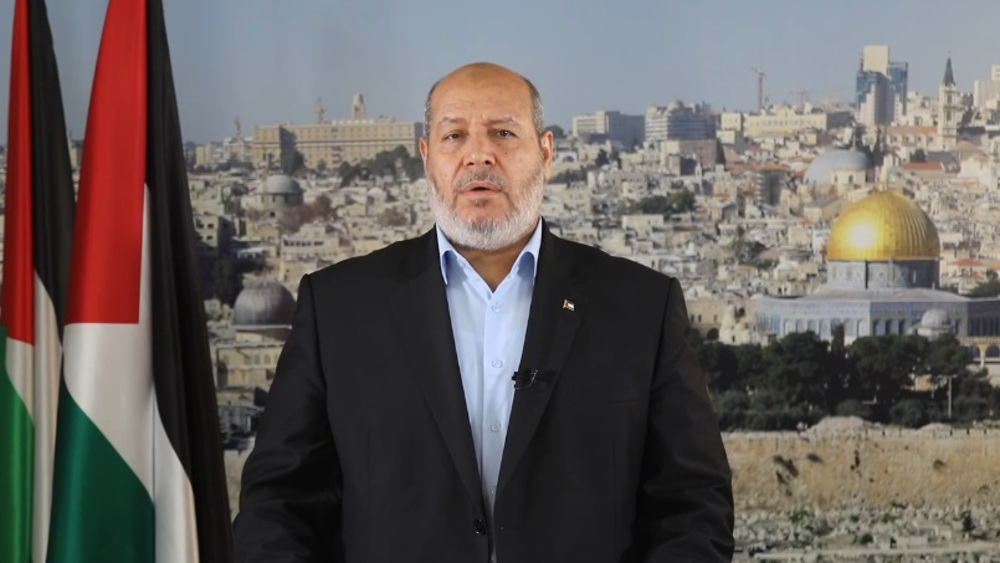Zarif: US cannot use snapback to reinstate sanctions on Iran
Iran's Foreign Minister Mohammad Javad Zarif has denounced US attempts to invoke a controversial mechanism to unilaterally reinstate sanctions on Tehran - a move with huge repercussions for the Iran nuclear deal.
“American snapback is illegal and unacceptable and the Americans know they cannot use snapback,” Zarif said during a ceremony in the capital Tehran on Sunday.
US President Donald Trump pledged Saturday to use the technique, a day after the UN Security Council overwhelmingly rejected an American resolution to extend an Iranian arms embargo.
"We'll be doing a snapback," Trump said during a news conference at his New Jersey golf club. "You'll be watching it next week."
"Snapback” was envisioned in the event Iran was proven to be in violation of the 2015 nuclear accord. Trump pulled out of the agreement, known as the JCPOA, in 2018. But the US circulated a six-page memo Thursday from State Department lawyers, claiming that the United States remained part of the 2015 Security Council resolution that endorsed the deal and still had the right to use the snapback provision.
Zarif strongly dismissed the contention. "American snapback is so illegal that it is not acceptable, and they know they cannot use it," he said.
"We should not think that if they say something loudly and repeat it, they are right," Zarif added.
Iranian Ambassador Majid Takht Ravanchi said on Saturday the US sought to use the arms embargo "as a pretext for killing the JCPOA forever through the snapback mechanism.”
Zarif recalled that back on May 8, 2018, former US National Security Advisor John Bolton "was so overjoyed to have ruined the JCPOA" that he triumphantly boasted during a press conference at the White House that “We are no longer a member of JCPOA to use the snapback mechanism.’”
“The minutes are still on the White House website unless they go and remove them,” the top Iranian diplomat said.
The five other signatories of the JCOPA — Russia, China, United Kingdom, France and Germany — remain committed to the deal, and diplomats from several of these countries have voiced concern that extending the arms embargo would lead Iran to exit the nuclear agreement and speed up its nuclear energy program.
China’s UN ambassador, Zhang Jun, reiterated after the vote the Chinese contention that since the US is no longer party to the 2015 agreement, it is "ineligible to demand the Security Council invoke a snapback.”
He said the overwhelming majority of council members "believe the US attempt has no legal basis.”
"Should the US insist regardless of international opinion, it is doomed to fail like today,” Zhang said in a statement, adding that the vote showed "that unilateralism receives no support and bullying will fail.”
Araghchi: Iran-Russia strategic deal step toward ‘more just world’
UNRWA unraveled amid Israel's allegations, reduced intl. support
Palestinian journalist, a Sobh Media Festival awardee, killed in Gaza hours before truce
Jan. 15: ‘Axis of Resistance’ operations against Israeli occupation
VIDEO | Fears, hope in Gaza amid intensified ceasefire efforts
VIDEO | Press TV's news headlines
Hamas: Ceasefire agreement result of steadfastness, resistance in Gaza over 15 months
Hamas thanks Iran, Resistance Front following achievement of ceasefire in Gaza









 This makes it easy to access the Press TV website
This makes it easy to access the Press TV website